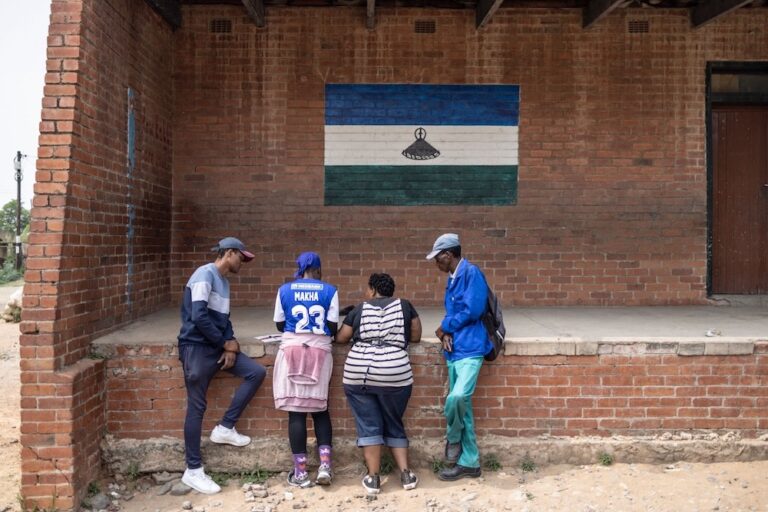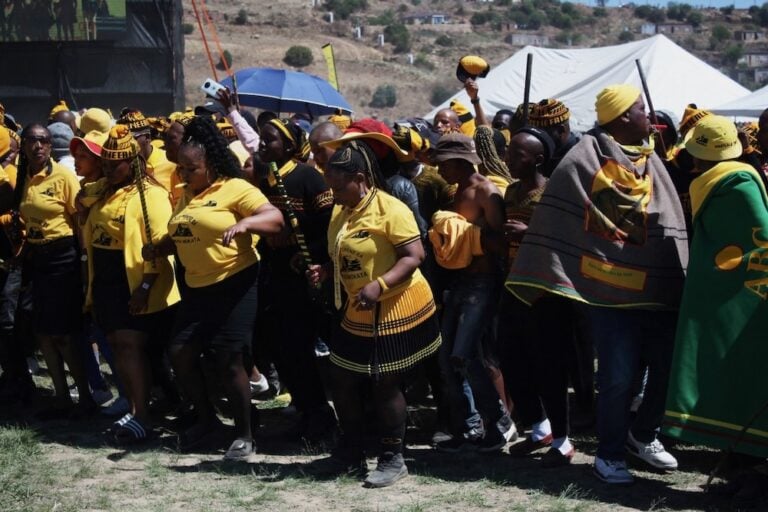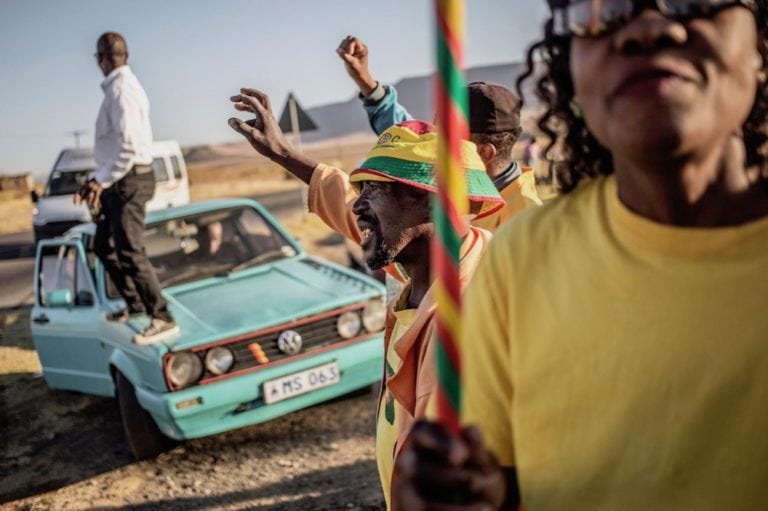Media violations against journalists, media practitioners and media outlets are on the rise in Lesotho.
This statement was originally published on lesotho.misa.org on 22 November 2021.
A statement highlighting the exponential growth of media violations against the media in Lesotho in recent weeks
The Lesotho chapter of the Media Institute of Southern Africa (MISA-Lesotho) has noted with grave concern the exponential growth in the number of media violations meted against individual journalists and workers of media institutions, as well as media organizations, and the sharp decline in the upholding and preservation of freedom of expression tenets.
In strident contrast to norm, the acts of terror and utter abuse are instigated and orchestrated by the part of society actually entrusted with protecting it and ensuring its decriminalization, which is security institutions – particularly the police.
While violations against the media have been a recurring national phenomenon over the years, it is quite disheartening to note that as the wheels of development perambulate and move forward in other parts, ours seem to be either on a stagnant or reverse motion, thus placing Lesotho way behind even the youngest of democracies almost six decades post its independence.
MISA Lesotho is also mindful of the fact that there are workers of some media houses and some media institutions who, while executing their daily mandate seem to have taken it upon themselves to play into the hands of enemy territory, by overlooking their basic operational tenets and executional ethics of professionalism. It is worth noting that if and when media play to the wrong audience or dance to the tune of politicians or other influencers, they become compromised, thus endangering the sector.
It is especially worrying that while 21st century Lesotho has practically put into motion steps towards charting a new path and turning a new page by implementing the all-encompassing multi-sector National Reforms agenda, it still has to grapple with the embarrassing and most of the time uncalled-for and unnecessary media freedom violations. This presents the country as something of a lost cause, taking one step forth and ten backward.
The following are some of the recent incidences of media freedom violations that happened only in the month of November 2021:
• On 9 November 2021, gunmen attacked the family of veteran journalist Marafaele Mohloboli, and seriously injured her husband. While it is yet to be established what the motive of the attack was, as well as who the perpetrators were since they are yet to be brought to book, the police have speculated that maybe the journalist was no target in the attack although investigations to establish truthfulness of the matter are continuing.
• On 14 November 2021, Lebese Molati, from 357FM, was detained and subjected to inhumane treatment at the hands of his captors who allegedly assaulted him and even went as far as suffocating him with a rubber tube while forcing him to give-in to a certain kind of truth pre-conceived by themselves.
• The police who were accused of assaulting and torturing Molati are yet to be brought to book.
• Commissioner of Police Holomo Molibeli, however, said action would be taken against the police officers who allegedly tortured Molati. As a result of the attack, it was our contention that he would open a case of assault against the perpetrators but that also was not to be, hence the hooligans masquerading as police officers continue to roam the streets possibly to inflict their onslaught on their next unsuspecting and community-serving journalist.
• True to their nature, a few days later, on 17 November 2021, elements of the unit had raided the studios and offices of People’s Choice (PCFM), wherein they are said to have subjected journalist Teboho Ratalane and the station’s management to questioning, in respect to a programme he had hosted, particularly attempting to force them to reveal their sources contrary to international best practices in a professional media space. The journalist had been left shaken and rattled, wondering what the future holds for him professionally.
• As the media freedom environment continued to deteriorate, Lesotho Times and Sunday Express courts reporter Mohalenyane Phakela was on 15 November 2021, barred entry and prevented from providing coverage at the courts of law by the lead judicial officer and custodian of justice administration Chief Justice (CJ) Sakoane Sakoane, for satirical content ran by his paper seen as critical to the CJ and his work.
• The judge said Phakela will not be allowed to report on the courts until his editor had apologized. We have since learned that Phakela has been cleared and can duly resume his duties of coverage after his editor apologized.
MISA finds the string of attacks against journalists and the media in Lesotho extremely worrying and calls on authorities to create an environment that promotes freedom of expression and of the media.
The attacks on journalists are even more concerning as they come almost a year ahead of the National Assembly General elections set for 2022, as they bring into question the country’s state of democracy and if and how the custodians of the same are committed to their work.
They also cast aspersions on the indisputability of the country’s commitment to media reforms, as part of the National Reforms.
MISA urges authorities to guarantee and ensure the safety and security of journalists and media workers in the country. The police officers on a drive to terrorize journalists and media workers must be investigated and duly be brought to book for their unlawful actions.
Government must also adhere to the revised principles of the African Commission on Human and Peoples Rights (ACHPR) Declaration on Freedom of Expression and Access to Information. MISA also appeals to authorities to ensure that the National Reforms fully materialize as the country now pins its hopes thereon especially on media reforms, which are seen as catalysts towards crossing the country over to a new legal dispensation.
In particular, MISA Lesotho strongly urges media practitioners and their organisations to remember their basic operational tenets and to, at all times, during the execution of requisites of their noble mandate, to be professional and adhere to operational code of conduct and media ethics at all times, as failure to do so endangers them by making them prone to abuse by others with differing and adverse goals.



